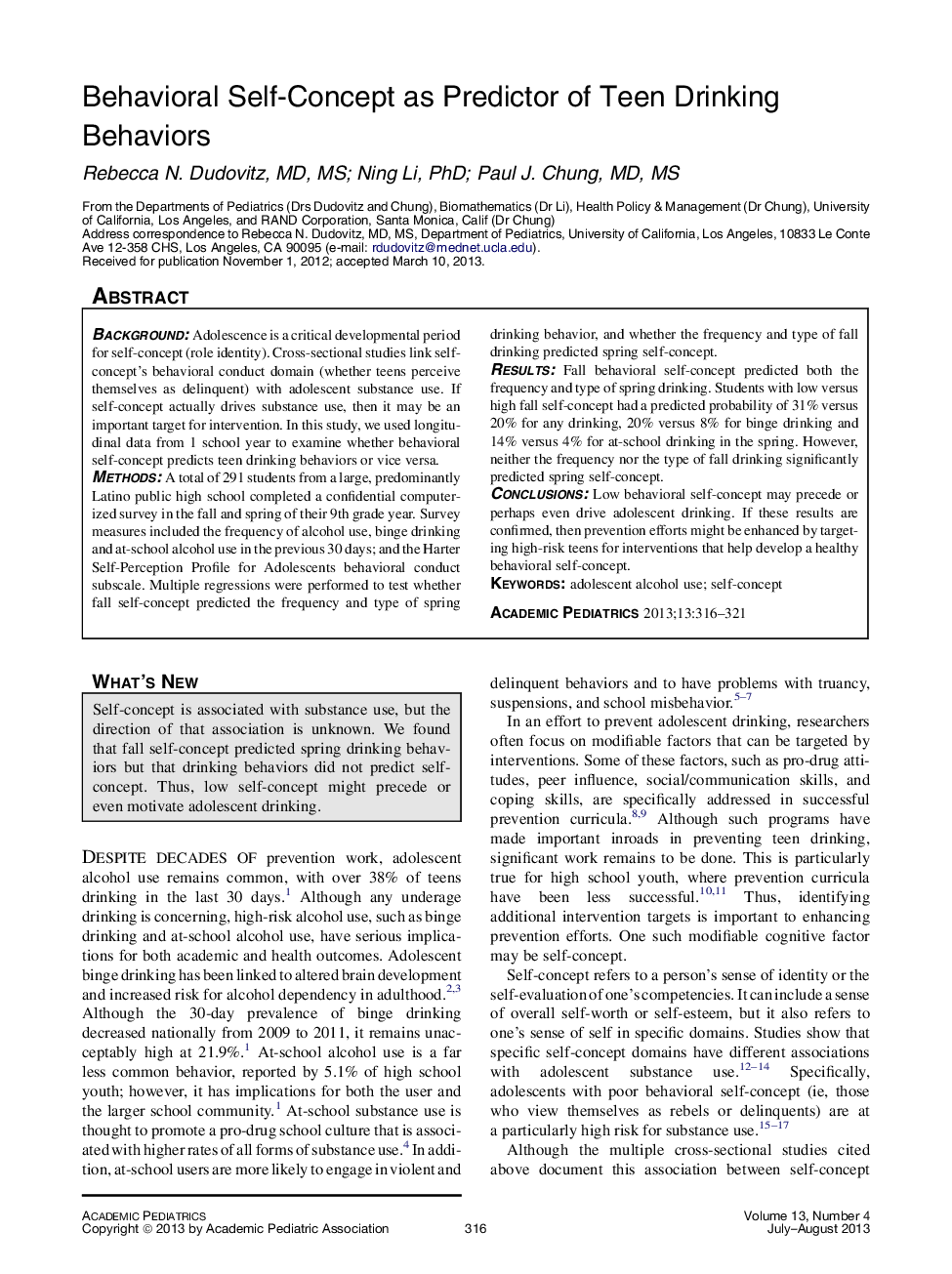| کد مقاله | کد نشریه | سال انتشار | مقاله انگلیسی | نسخه تمام متن |
|---|---|---|---|---|
| 4139820 | 1272222 | 2013 | 6 صفحه PDF | دانلود رایگان |

BackgroundAdolescence is a critical developmental period for self-concept (role identity). Cross-sectional studies link self-concept's behavioral conduct domain (whether teens perceive themselves as delinquent) with adolescent substance use. If self-concept actually drives substance use, then it may be an important target for intervention. In this study, we used longitudinal data from 1 school year to examine whether behavioral self-concept predicts teen drinking behaviors or vice versa.MethodsA total of 291 students from a large, predominantly Latino public high school completed a confidential computerized survey in the fall and spring of their 9th grade year. Survey measures included the frequency of alcohol use, binge drinking and at-school alcohol use in the previous 30 days; and the Harter Self-Perception Profile for Adolescents behavioral conduct subscale. Multiple regressions were performed to test whether fall self-concept predicted the frequency and type of spring drinking behavior, and whether the frequency and type of fall drinking predicted spring self-concept.ResultsFall behavioral self-concept predicted both the frequency and type of spring drinking. Students with low versus high fall self-concept had a predicted probability of 31% versus 20% for any drinking, 20% versus 8% for binge drinking and 14% versus 4% for at-school drinking in the spring. However, neither the frequency nor the type of fall drinking significantly predicted spring self-concept.ConclusionsLow behavioral self-concept may precede or perhaps even drive adolescent drinking. If these results are confirmed, then prevention efforts might be enhanced by targeting high-risk teens for interventions that help develop a healthy behavioral self-concept.
Journal: Academic Pediatrics - Volume 13, Issue 4, July–August 2013, Pages 316–321